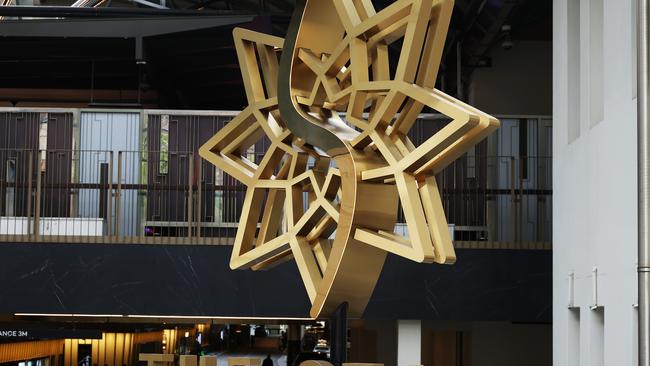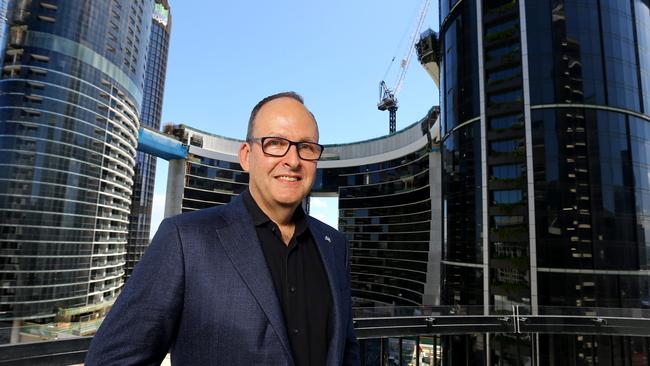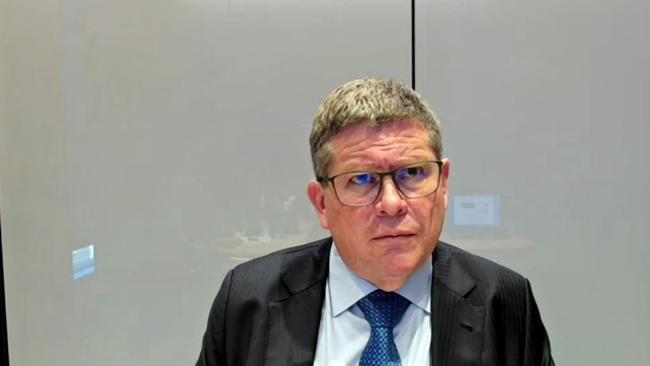What are you doing? Bell takes aim at Star reforms
Star inquiry head Adam Bell SC says it's unclear what the troubled gaming group is doing to reform itself in order to retain its Sydney casino licence.

Star inquiry head Adam Bell SC says it's unclear what the troubled gaming group is doing to reform itself in order to retain its Sydney casino licence.
The Bell II inquiry was held in closed session on Tuesday afternoon to discuss the finances of Star after Mr Bell earlier took aim at the company’s remediation efforts, describing them as “amorphous” and lacking “clarity.”
Mr Bell, who will ultimately recommend to the NSW government whether Star is suitable to hold its Sydney casino licence, said a promised “reset” of remediation plans by the company were more than a year behind schedule.
Responding to closing submissions from counsel assisting the inquiry Caspar Conde, Mr Bell said he didn’t “have any clarity as to precisely what is being done about” the reset.
“Mr Conde, my impression is that the evidence about a reset in the remediation plan is somewhat amorphous,” said Mr Bell.
It is not the first time Mr Bell has taken aim at the slow progress of reform at Star, after his earlier inquiry in 2022 found Star had not met its obligations to prevent money laundering and organised crime links.
The current 15-week inquiry was established by the NSW Independent Casino Commission, amid concerns from the regulator that Star had failed to move swiftly enough to act upon the findings of the earlier inquiry.
Mr Conde agreed with Mr Bell that “amorphous” would be a fair characterisation of Star’s promised reset.
“There is some evidence about prioritising certain milestones over others, rather than just working through, but that’s obviously at a higher level of generality,” Mr Conde said.
“I’m not aware of any document, for example, that would record this reset, or record any principles for the reset or indeed the reset itself. There’s been foreshadowed work on it, but as you say, Mr Bell, it’s somewhat amorphous.”

Mr Conde had on Monday said Star was “leaderless” and susceptible to criminal exploitation as it lagged at least 14 months behind in remediation efforts.
He said a $3.2m fraud committed against Star last year involving malfunctioning cash machines showed the company was still vulnerable to criminal activities as the ranks of its senior executive team remained depleted.
Mr Conde told the inquiry on Monday that evidence from organisational specialist Elizabeth Arzadon, who was employed as a consultant by Star, was that the “company is about six months down the journey that she thinks would take three to five years.”
“There was an acceptance by Ms Arzadon about many lost opportunities and missteps in relation to cultural renewal,” said Mr Conde.
Mr Conde had said there were some signs Star was now changing it “internal story” about the need for reform. “No-one is suggesting Star is presently suitable to hold a casino licence, but a number of recent changes, some of which had occurred during and as a result of the current inquiry, has both reoriented Star and removed barriers to the possibility of achieving suitability in the future.” This included the removal of former chief executive Robbie Cooke and chairman David Foster from their positions.
Earlier, the inquiry heard Mr Cooke and Mr Foster spied on the government-appointed manager Nicholas Weeks tasked with overseeing the clean-up of operations at Star’s flagship Sydney casino, and plotted to establish a shareholder class action against him.
“There is now a more mature and indeed realistic approach to remediation and transformation,” said Mr Conde.
“This inquiry has provided an opportunity for Star’s 8,500 staff to reassess the story that has been prevalent for the last six months: that the regulator doesn’t like them. So they can see that internal narrative was not reflective of the relationship that the regulator wanted to promote with the staff group. In terms of removal of barriers to suitability, both Mr Cook and Mr Foster represented barriers in light of what we call their hostility to the NICC.”
More Coverage







